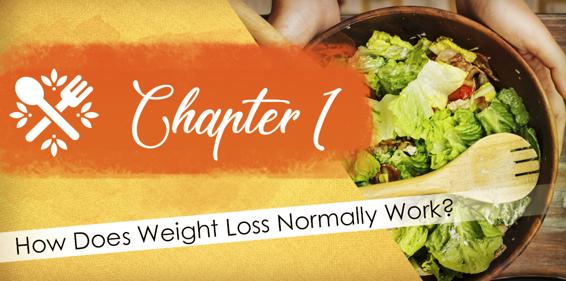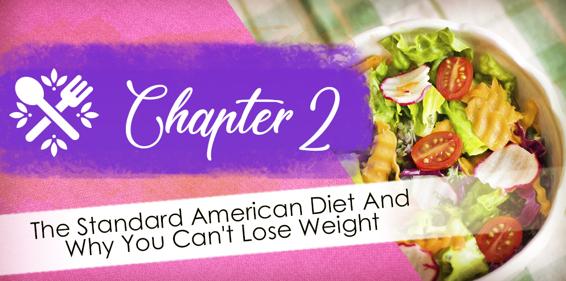

If you're reading this book, you probably are a veteran of several diets. I can't say I blame you because you are not alone. In fact, millions of Americans try one diet after another only to end up in the same place. Actually, too many of us go on diet after diet and we get heavier and heavier each time we try.
It's bad enough that a lot of these diets are unable to keep the weight off but once you get off the diet, you gain more pounds. It's a very frustrating situation and a lot of people have basically thought that outside of surgery, losing weight on a sustainable basis is pretty much a pipedream.
You’re in luck. It turns out, according to fairly recently search, that fat has actually gotten a bad rap.
Based on these recent analyses, the real culprit for America's exploding waistline is none other than sugar. You heard that right.
The old idea of eating a lot of fruits, starchy food and starchy vegetables is actually making you sick. It leads to inflammation; it increases the chances of developing certain types of cancer; and it inflames the system so much that it can put people at risk of cardiovascular diseases.
By loading up on eggs, avocados, and other high-fat, low-carb foods, you can live healthier while losing weight on a sustainable basis. The key is achieving ketosis. Don’t get scared of the term. Your
body can take only two forms of energy. Either it uses up the sugar in your bloodstream or it takes in fat in the form of chemical compounds produced by your liver called ketones.
When people achieve ketosis, they not only lose weight, but they get a nice burst of energy; they think more clearly; their skin improves and a whole long list of tremendous health benefits. If you are looking for a great way to adopt the keto diet and recalibrate your metabolism for sustainable weight loss, you are reading the right book.
In this book, I’m going to step you through the basics of a keto diet so as to maximize your chances of success. Please understand that this book is a framework. In other words, I’m not going to make you stick to a rigid system like a typical diet book.
This book is a framework. You basically work with your existing diet and you switch gradually over to a ketogenic diet and you stay there. This way, you experience less psychological internal resistance to your lifestyle change. This is less a diet book as it is a lifestyle-modification book.
Make no mistake, if you want the pounds to go and you want them to remain gone, you have to change your lifestyle. Stop going on diet after diet. Instead, change your attitude about certain foods and change your lifestyle. It can be done. This book will teach you how to do it.

What if I told you that weight loss is actually pretty straightforward. You might be thinking that I've lost my mind. If you are like most people who have been struggling with their weight, “simple” is not the first word to enter your mind when asked to describe dieting.
It's easy to be frustrated about weight loss. A lot of people have a tough time losing weight and keeping the pounds off. However, when you look at human metabolism with a big picture of you, it's actually pretty straightforward.
In fact, it can be reduced to a simple mathematical formula: calories in, calories out. When you try to lose weight, you really only have 2 options. It may seem like there are tons of weight loss options and systems out there, but it really all boils down to these 3 methods. Everything else is a variation of these 3 methods or categories.
Category #1: Eat less calories, but burn the same amount of energy.
In any given day, you are already burning calories. That's right! Just by simply reading this book, you are burning calories. In fact, when you wake up and you breathe and digest food throughout the day as well as pump blood, you are burning calories.
The bottom line is if your body does anything at all, it requires energy. In other words, it's burning calories. This is called your passive calorie burn rate. If you were to eat less calories than the amount of energy your body needs to function every single day, your body is forced to look at your stored energy.
In other words, it starts eating your fat and, eventually, your muscle tissues. That's how it works. Your body has to get enough energy somehow to be able to do what it needs to do on a day to day basis.
When there is a deficit between the amount of calories you eat and the amount of energy you burn, your body starts to burn up fat.
Before you know it, you start weighing less and you start looking better and better.
Category #2: Eat the same amount of calories, but burn energy at a higher rate.
You can also choose to flip the script. When people decide to go to the gym or start doing physical exercises daily, this is what they're doing. They eat the same amount of food, but they increase their physical activities.
Please understand that you don't have to overdo it. You don't have to do something dramatic in terms of your physical exertion levels. By simply just walking around the block or walking a longer distance from the parking lot to your office or school, you can burn more energy.
Again, the same process takes place. When you eat the same amount of calories but your body burns more energy, it's going to start looking for other sources of energy. It starts to burn fat and then, eventually, it starts to burn muscle.
The end result is the same. You start losing weight.
Category #3: Burn the weight loss candle from both ends.
This is a no brainer. Since you know that you can lose weight just by eating less calories while burning the same amount of energy or you can eat the same amount of calories while burning more energy, why not do both? That's the third option.
Again, self explanatory.
This is how weight loss normally works.
In terms of a big picture view, this is how weight loss normally works. It's all about calories in, calories out. As simple as this may sound, people have a tough time doing this because of the standard American diet.
Now, please understand that thanks to modern food technology and transport systems, the standard American diet did not remain in the confines of the United States. If you are middle class pretty much all over the world, chances are you have adopted the standard American diet and it's making you fatter and fatter.

The standard American diet seems pretty innocuous at first glance. I mean, who has a problem with eating a certain amount of protein and a certain amount of carbohydrates in the form of fruits and vegetables and grains and small amount of fat, if at all?
It's probably been drilled into your head for over several years that this is the healthy way to go.
Nobody can really blame you for thinking otherwise. But what if I told you that the standard American diet, with its heavy focus on protein and carbohydrates, is actually making you sick and making you fat?
Carbohydrates and the problem with insulin
Whenever you have more than 12 to 20 grams of carbohydrates in your diet, insulin is going to be an issue. Normally, insulin is a good thing. Insulin, after all, is the hormone that unlocks your body's cells so it lets in the sugar in your bloodstream. Once your cells absorbs the sugar, it then converts it into energy.
Well here's the problem with insulin. It has a dark side. When insulin is in your system, your body uses blood sugar for fuel. This means it's not burning fat. In fact, insulin has the effect of locking your fat cells so none of that energy gets out.
Your body is blocked from using fat as energy. That spare tire you're walking around with will remain with you until and unless you deal with insulin. Reduce insulin and your body starts burning fat for fuel. It's that simple.
The problem is the standard American diet has so much carbohydrates that people starts suffering from the excesses of insulin. Not only do they have spikes in insulin levels which leads to them feeling hungry throughout the day, a high-carb diet also inflames your system.







